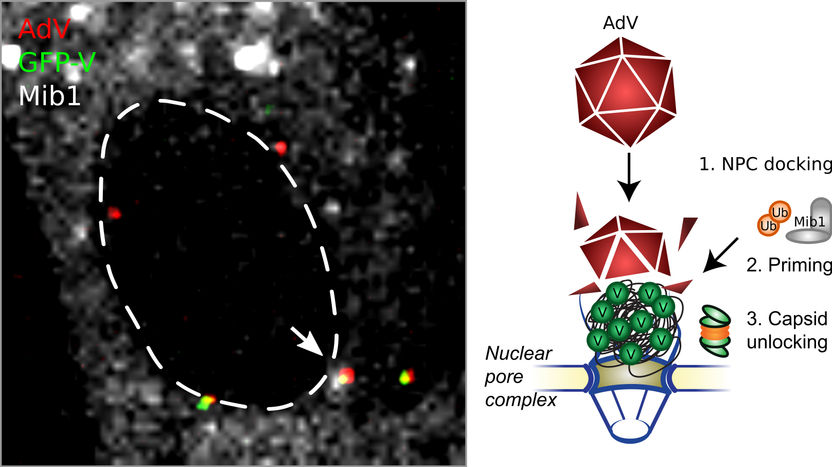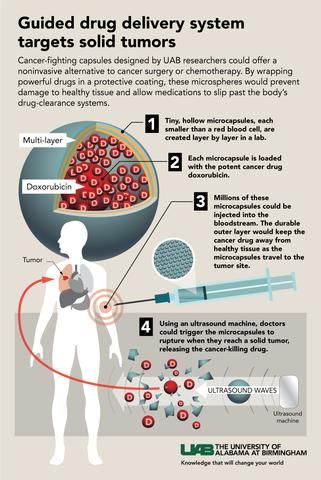Three dimensional force microscopy
Method of measuring forces of tumour cells as they migrate through connective tissue developed
Metastases occur when tumour cells detach from the primary tumour and migrate to distant sites through the connective tissue of organs. During this migration process, the tumour cells generate mechanical forces in order to overcome the resistance of the connective tissue or to change their shape so they can pass through very small pores. Physicists at Friedrich-Alexander-Universität Erlangen-Nürnberg (FAU) described a method for measuring these mechanical forces.
Julian Steinwachs and colleagues at the Biophysics Group investigated tumour cell migration in artificial connective tissue made of collagen, which mimics the natural matrix of organs in terms of its chemical composition, structure and other material properties. The idea behind their method is simple: the researchers first measured the deformation of the connective tissue around the migrating cells. If the elasticity of the connective tissue is known, it can then be used like a spring scale to calculate the cell forces from the tissue deformations.
A particular challenge for the researchers was that connective tissue is initially soft when forces are weak, but stiffens at the level of forces generated by tumour cells. Tumour cells also used part of their forces to elongate into a spindle-like shape, allowing them to migrate at a remarkable speed even through very small pores of the connective tissue. In their next project, the researchers will apply this method to investigate differences in the cell forces between differently aggressive tumours.
Original publication
Original publication
Julian Steinwachs, Claus Metzner, Kai Skodzek, Nadine Lang, Ingo Thievessen, Christoph Mark, Stefan Münster, Katerina E Aifantis & Ben Fabry; "Three-dimensional force microscopy of cells in biopolymer networks"; Nature Methods; 2015
Organizations
Other news from the department science

Get the life science industry in your inbox
By submitting this form you agree that LUMITOS AG will send you the newsletter(s) selected above by email. Your data will not be passed on to third parties. Your data will be stored and processed in accordance with our data protection regulations. LUMITOS may contact you by email for the purpose of advertising or market and opinion surveys. You can revoke your consent at any time without giving reasons to LUMITOS AG, Ernst-Augustin-Str. 2, 12489 Berlin, Germany or by e-mail at revoke@lumitos.com with effect for the future. In addition, each email contains a link to unsubscribe from the corresponding newsletter.
More news from our other portals
Last viewed contents
Emerging psoriasis therapies go head-to-head with marketed drugs - Comparative efficacy data critical for higher uptake since psoriasis is not considered a life-threatening condition
Novo Nordisk opens new research centre in Seattle

Mechanism for DNA Invasion of Adenoviral Covid-19 Vaccines Discovered - Premature release of DNA activates anti-viral alarm systems

Triple-threat cancer-fighting polymer capsules for guided drug delivery created
Drugs encased in nanoparticles travel to tumors on the surface of immune-system cells - New approach could dramatically improve the success rate of immune-cell therapies
Biogen Idec and Sobi Initiate Global Clinical Trials of Long-Lasting Hemophilia A and B Product Candidates in Children
Scientists identify a candidate gene for osteoporosis - Gene may underlie differences between African Americans and Caucasians
Stora Enso and Gasum to make renewable energy from wastewater in Sweden




















































